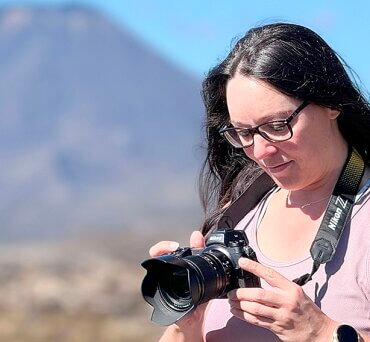
Janine Krippner
“Tourists warned of volcano (in capital letters) alert in Spanish holiday hotspot as locals urged to leave homes”

Janine Krippner
This was a headline published a few weeks ago by Great Britain News, and I want to unpack it as a prime example of why we must be cautious when confronted with dramatic headlines.
If you have been reading my recent columns, you know that I just spent six weeks in the Canary Islands, the majority of which was on Tenerife – the island this headline was about. Two weeks of this was with a fantastic group of students working on a volcanic resilience project in the gorgeous seaside town of Garachico. The very town that this headline was about.
We were there because for quite a while now, an exercise has been planned by authorities to test their capabilities for an evacuation; a test-run that can also be applied elsewhere. This is part of a larger European Union effort to test emergency management capabilities for a range of disasters. A quick and simple Google search shows this being openly discussed back in October of last year. Any semblance of fact-checking could find this.
Garachico was chosen for this exercise because of its history. The town was damaged during the 1706 eruption, an event that was commemorated while I was there. Not because of an impending eruption.
And yes, if you keep scrolling it clarifies that this is, in fact, not related to some recent small earthquakes below the island. Which, by the way, are common for a volcanic island such as Tenerife.
Can you tell that I am absolutely fed up? I have been for years.
Headlines like this exist to get you to click on the link, generating profit with no consideration for who they may harm.
This kind of sensationalist headline is designed for one thing: clicks. Clicks mean profit. And unfortunately, this kind of misleading content is everywhere. More and more junk is flooding the internet, making it harder to find clear, factual information. As a volcanologist, I can spot inaccuracies quickly. But I worry about topics outside my expertise, how can I trust what I read when I see how often misinformation spreads in my own field?
Sometimes, misinformation is intentional; other times, it’s just poorly researched. But either way, it can look deceptively credible when sprinkled with enough technical-sounding language.
What can we do?
Firstly, seek out the experts. One silver lining of the social media era is that it gives scientists and specialists platforms to share knowledge directly. Look for blogs by researchers, articles published by reputable organisations, or commentary from qualified professionals. Be mindful of where your information comes from, and who is giving it.
Watch out for inflammatory language, especially if it’s in all capital letters. That’s a red flag. Even though I’m mad about this issue, my response is measured. Sensationalist headlines rarely come from trustworthy sources.
Now more than ever, we need to approach the news with a healthy dose of scepticism. It’s the only way to ensure we’re consuming facts, not fiction created to serve someone else’s agenda.

A Shot of Mountain Landscape and Mountain Village, Tenerife. Photo: Mike Marchetti pexels.com








